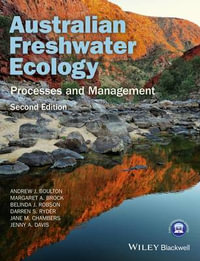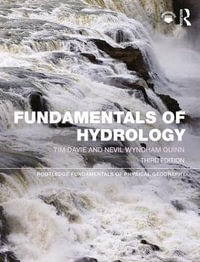
Groundwater Geochemistry
A Practical Guide to Modeling of Natural and Contaminated Aquatic Systems
By: Broder J. Merkel, Darrell K. Nordstrom (Editor), Britta Planer-Friedrich
Paperback | 30 April 2017 | Edition Number 2
At a Glance
Paperback
$117.74
Aims to ship in 7 to 10 business days
ISBN: 9783662517505
ISBN-10: 3662517507
Published: 30th April 2017
Format: Paperback
Language: English
Number of Pages: 244
Audience: Professional and Scholarly
Publisher: Springer Nature B.V.
Country of Publication: DE
Edition Number: 2
Edition Type: Revised
Dimensions (cm): 23.5 x 15.57 x 1.3
Weight (kg): 0.35
Shipping
| Standard Shipping | Express Shipping | |
|---|---|---|
| Metro postcodes: | $9.99 | $14.95 |
| Regional postcodes: | $9.99 | $14.95 |
| Rural postcodes: | $9.99 | $14.95 |
How to return your order
At Booktopia, we offer hassle-free returns in accordance with our returns policy. If you wish to return an item, please get in touch with Booktopia Customer Care.
Additional postage charges may be applicable.
Defective items
If there is a problem with any of the items received for your order then the Booktopia Customer Care team is ready to assist you.
For more info please visit our Help Centre.
You Can Find This Book In
This product is categorised by
- Non-FictionEarth Sciences, Geography, Environment, PlanningEarth SciencesGeology & The LithosphereEconomic Geology
- Non-FictionScienceChemistryAnalytical Chemistry
- Non-FictionEngineering & TechnologyEnvironmental Science
- Non-FictionEarth Sciences, Geography, Environment, PlanningEarth SciencesHydrology & The HydrosphereLimnology & Freshwater
- Text BooksTextbook FinderThe University of QueenslandERTH3250 Groundwater Processes & Resources
- Non-FictionEarth Sciences, Geography, Environment, PlanningThe Environment
























